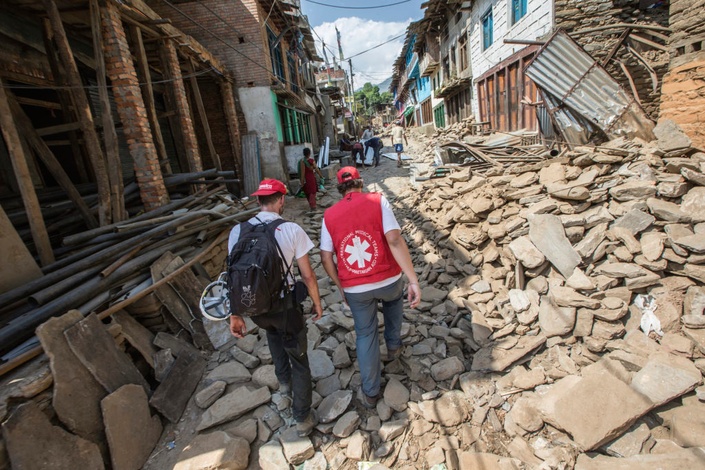
Project Planning and Proposal Writing
Coached Online Learning Program: 22 January - 19 February 2025
JOIN NOWProject Planning and Proposal Writing
Project planning and proposal writing provide the foundation for designing, implementing, and securing support for impactful programs. Project planning and proposal writing more than just administrative tasks—they are strategic tools that ensure humanitarian and development programs are well-conceived, impactful, and sustainable.
These skills help project teams to:
- Identify real needs through structured problem analysis, ensuring proposals address critical gaps and address the most pressing challenges faced by communities.
- Set clear, measurable goals aligned with community and donor priorities to secure funding and drive results.
- Develop compelling proposals that align with organizational strategies, donor requirements, and global frameworks, increasing the likelihood of funding approval.
Gain the expertise to:
- Develop compelling projects: Design projects that resonate with stakeholders and inspire their support. Build your skills in aligning projects with broader development goals while effectively communicating their value.
- Master the Logical Framework Approach: Learn to apply the Logical Framework Approach to create well-structured projects that meet rigorous standards and drive measurable results.
- Refine persuasive communication: Plan and articulate proposals in a clear, concise, and persuasive manner. Discover strategies to tailor your proposals to capture donors’ interest and secure the support your initiatives need.
Who Should Attend?
This training is for anyone in working in relief, humanitarian or development contexts who is involved with project planning or developing compelling proposals. This training will support you with practical practical tools and knowledge to design projects that effectively respond to beneficiary needs, to meet donor expectations, and to create persuasive, well-structured proposals.
Course Process
This course is designed to provide a practical learning experience, combining coached live sessions, self-paced study, and personalized post-training feedback to ensure actionable results. With a focus on real-world applications, the program supports you every step of the way, from learning essential tools to refining your skills. Here's what you can expect:
- Live sessions: Engage in five interactive weekly live online sessions (recorded for future reference). Led by expert instructor Neil Kendrick, these small-group live sessions provide a unique opportunity for real-time discussions, targeted coaching, and practical problem-solving—ensuring you can immediately apply what you’ve learned to real-world challenges.
- Flexible self-study: Access practical downloadable video presentations, transcripts, handouts, exercises, and tasks, allowing you to learn and apply skills at your own pace between live sessions.
- Knowledge checks: Assessments at the end of each module test your understanding, reinforce learning, and help you reflect on key concepts.
- Discussion spaces: Share insights, ask questions, and engage with other participants in discussion sections designed to enrich your learning experience and shape the focus of live sessions.
- Post-training personalized feedback: Submit an assignment to receive detailed, tailored feedback designed to help you refine your skills and apply what you’ve learned effectively.
- Certification of professional achievement: Upon successful completion, earn a certificate that recognizes your skills, dedication to learning, and commitment to professional excellence.
Meeting Schedule
Each Wednesday for 5 weeks, from 10:00 to 11:30 UTC.
Starts 22 January 2025.
You can check current UTC time here.
See the full curriculum below.
A maximum of 8 participants will be accepted for this training.
If you have any questions or would like to discuss whether this course is suitable for you or your team, feel free to email or chat with us.
COURSE CURRICULUM
-
StartGETTING STARTED: INTRODUCTIONS AND EXPECTATIONS
-
StartMEETING 1
-
StartRESOURCES
-
StartWHAT IS PROFESSIONAL WRITING? (5:55)
-
StartWHY DO SO MANY PEOPLE GET IT WRONG? (12:54)
-
StartWRITING TELLS OTHERS WHO WE ARE (14:03)
-
StartTHE WRITING PROCESS (7:50)
-
StartPROGRESS ASSESSMENT
-
StartDISCUSSION
-
StartRESOURCES
-
StartMEASURING CLARITY: THE FOG INDEX (20:51)
-
StartTOOLS AND EXERCISES FOR IMPROVING CLARITY PART 1 (8:01)
-
StartTOOLS AND EXERCISES FOR IMPROVING CLARITY PART 2 (9:13)
-
StartTOOLS AND EXERCISES FOR IMPROVING CLARITY PART 3 (9:38)
-
StartWHAT WE'VE LEARNED SO FAR (1:33)
-
StartSOLUTIONS TO TASKS & EXERCISES
-
StartPROGRESS ASSESSMENT
-
StartDISCUSSION
Your Instructor
Leading ELD Training with over 25 years of experience, Neil Kendrick from the UK specializes in Professional Writing, Reporting Skills, Proposal Writing, Results-Based Management, and Monitoring & Evaluation. He has trained and coached humanitarian and development professionals from hundreds of organizations in over 20 countries across Asia, Africa, Europe, and the Americas.
How to Enroll
You can sign up immediately using secure credit card payment below. For individuals or organizations unable to pay by credit card or looking to enroll multiple participants, please contact us to discuss alternative payment options, including bank transfers or group enrollment packages..
Tiered Pricing
We understand that organizations in the humanitarian and development sector have different financial capabilities. To ensure accessibility, we offer a two-tiered pricing system based on your budget. Simply choose the pricing tier that best suits your organization's needs.
Both pricing tiers provide the same high-quality training—live meetings, lifetime access to resources, and personalized feedback—ensuring you receive full value regardless of the option you select. This approach allows us to maintain our commitment to quality while making the training accessible to those who need it most.